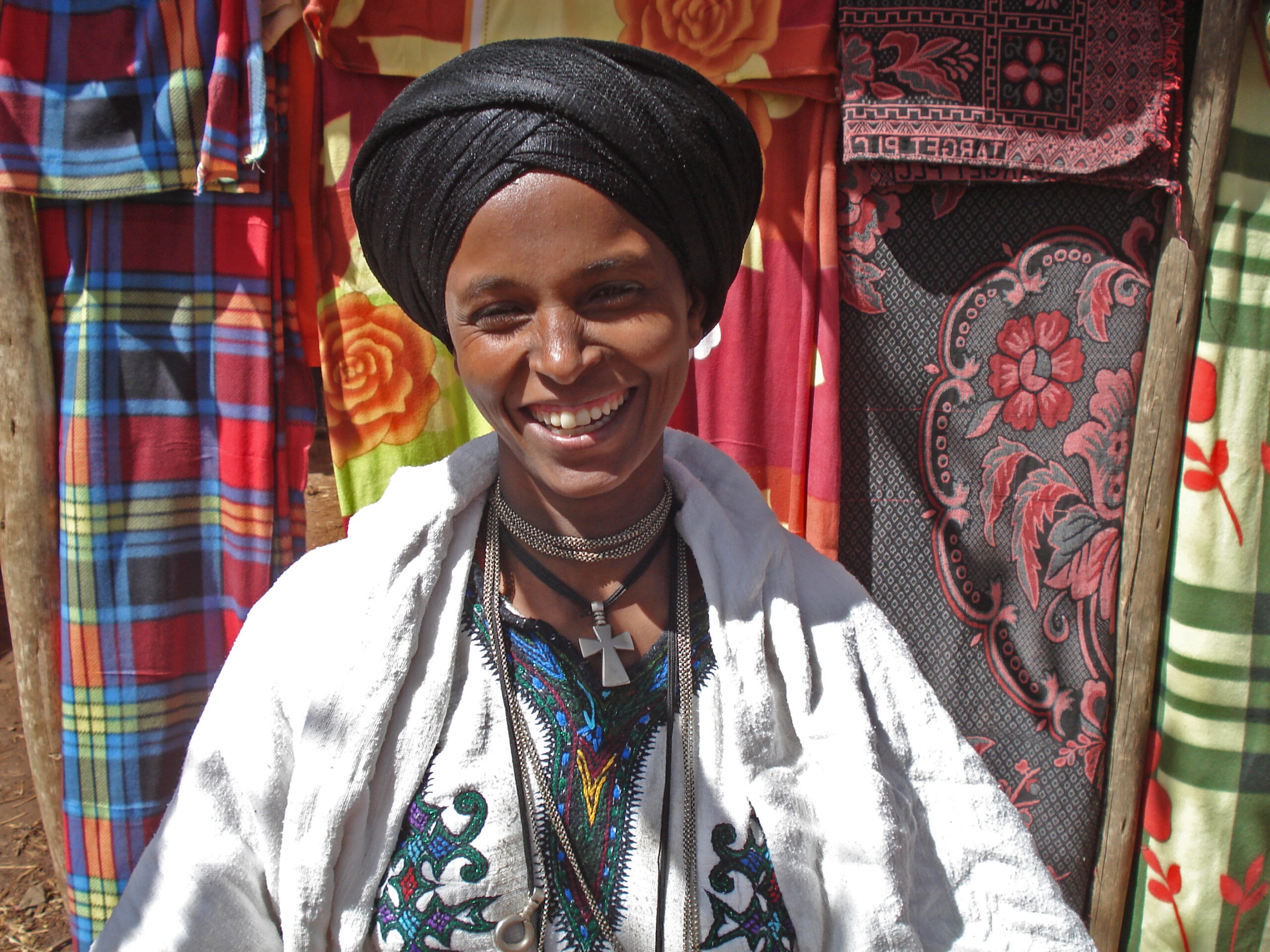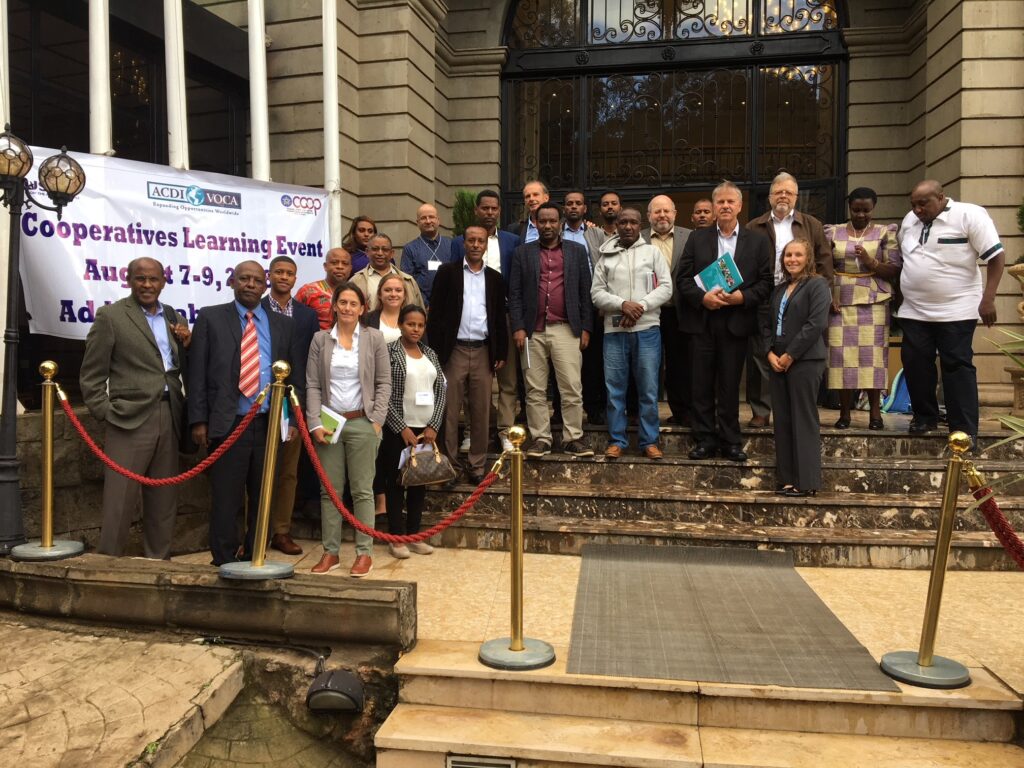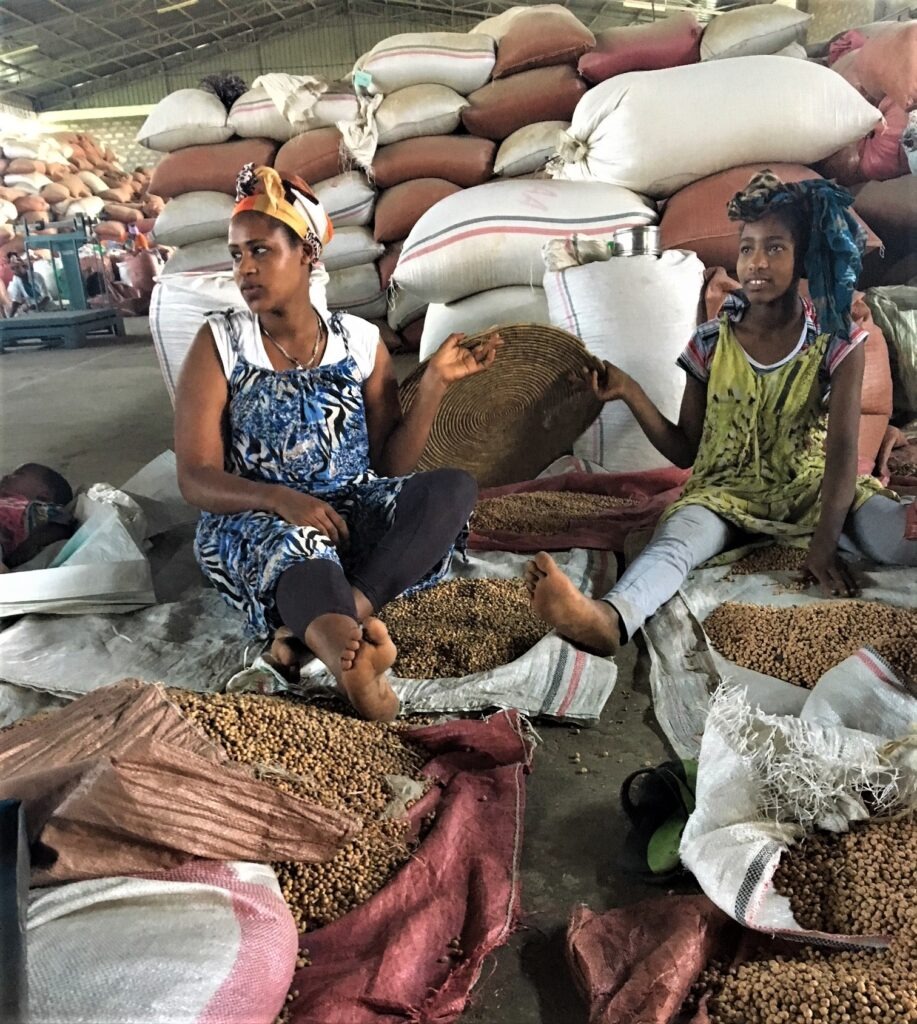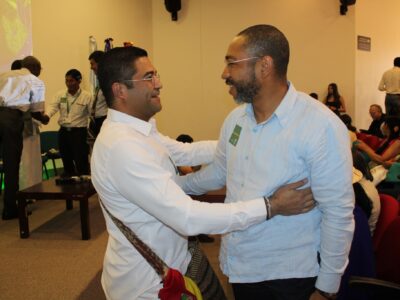
A few years ago, I was looking over a bank statement and discovered that my bank had taken to charging me $14 a month for the privilege of banking with them. This was around the time that my soon-to-be ex-bank had taken a $600 million taxpayer-funded bailout and then used the funds to acquire smaller financial institutions. I was, as the late, lamented Weekly World News would have put it, pig-biting mad. That was the day I moved my money to a credit union and joined the cooperative movement.
One of the things I value about cooperatives is our commitment to the International Cooperative Alliance’s seven guiding principles, one of which being “Education, Training and Information.” This principle means that cooperatives work to inform their members, the public, and each other about the benefits of cooperation. As ACDI/VOCA’s director of inclusive market systems, it was in this spirit that I organized ACDI/VOCA’s first Cooperative Development Program learning event, held in August in Addis Ababa, Ethiopia.

Attendees of the Cooperative Development Program Learning Event in Ethiopia in August 2018.
The program, funded by USAID, aims to improve the governance, management, and productive capacity of business-oriented, professionally managed, farmer-owned and operated cooperatives to better meet the needs of their members through targeted technical assistance and capacity building activities. Nine cooperative development organizations implement the program. The current iteration of ACDI/VOCA’s Cooperative Development Program started in 2010 and serves cooperatives in Ethiopia and Liberia.
Our learning event brought together representatives from five international organizations, including USAID, the Government of Ethiopia and several Ethiopian cooperatives, for three days of sharing best practices in cooperative development, reviewing what program implementers and cooperatives have learned over the past eight years, and networking among Ethiopian cooperators.

The Lume Adama Farmers Cooperative Union and was established in 1997 as the first cooperative union in Ethiopia.
We participated in presentations and panel discussions on topics, ranging from how to measure the success of cooperatives and stories of successful cooperative development activities to customized accounting software for agricultural cooperatives. We also visited three cooperative unions: (1) the Oromia Coffee Farmers Cooperative Union, (2) a multipurpose cooperative union whose members were sorting haricot beans when we visited, and (3) a savings and credit cooperatives’ union.
I came away from the event with three takeaways. First, there are very few market-based problems that don’t lend themselves to a cooperative solution; health care, housing, and savings and credit are only the beginning of markets that cooperatives can support. Second, cooperatives must succeed or fail as businesses. No one should join a cooperative out of pity or to access resources from donors. And lastly, I was impressed by how committed the Ethiopian and international cooperators were to the “Education, Training and Information” guiding principle. ACDI/VOCA has spent the last eight years doing our best to enact those principles through our Cooperative Development Program. I am confident that ACDI/VOCA’s commitment to the cooperative principles will lead to more events like this one.
Comments







